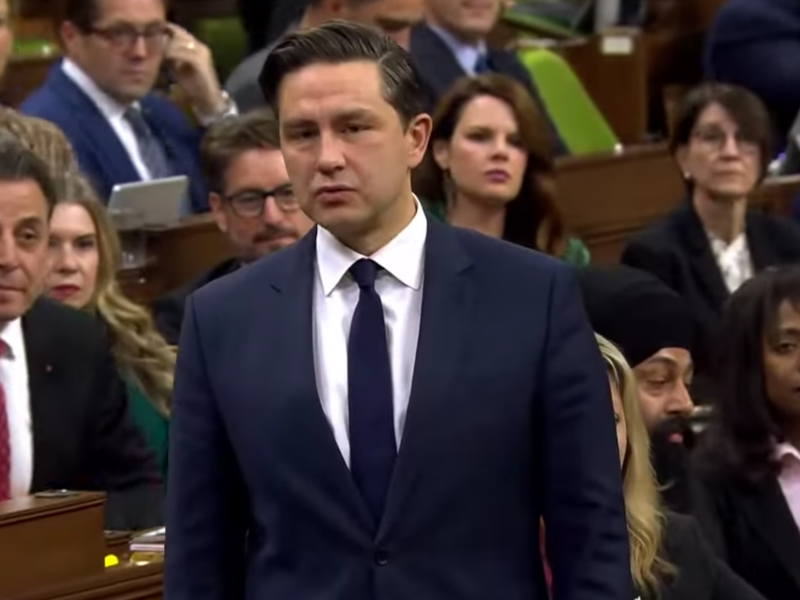Liberal House Leader Accuses Poilievre of ‘Hiding Something’ by Refusing Security Clearance
The Canadian political landscape continues to heat up as Liberal House Leader Karina Gould has accused Conservative Leader Pierre Poilievre of “hiding something” by refusing to obtain the necessary national security clearance to review classified intelligence. This clearance would give Poilievre access to sensitive documents, including details on Conservative parliamentarians allegedly linked to foreign interference efforts.
In a social media post on Thursday, Gould questioned Poilievre’s refusal to engage in the clearance process. “Does he think he might not pass the security check, or does he know something that he’s trying to hide? Or perhaps there’s something he’s protecting?” she said in an accompanying video, marking one of the strongest public criticisms from the Liberal government so far on the matter.
The controversy follows recent testimony from Prime Minister Justin Trudeau at the inquiry into foreign interference, where he stated he had reviewed intelligence suggesting Conservative parliamentarians were either involved in or susceptible to foreign interference. Trudeau further criticized Poilievre’s decision, labeling it “irresponsible” for a leader to avoid the security process that would allow him access to these classified briefings.
Poilievre Pushes Back, Citing Concerns Over Secrecy
Poilievre has dismissed Trudeau’s remarks, accusing the prime minister of dishonesty and political theater. The Conservative leader argues that obtaining the security clearance would legally bind him to secrecy laws, preventing him from speaking publicly or challenging the government on key issues.
Adding to the debate, Gould referenced comments from Conservative foreign affairs critic Michael Chong, who expressed concerns that the government might misuse personal information collected during the security clearance process. In an interview with The Globe and Mail, Chong voiced skepticism about the prime minister’s intentions. “I don’t trust this prime minister,” Chong said, suggesting the clearance process could involve intrusive background checks on family, finances, and personal matters, which he fears may be exploited for political gain.
Conservatives Demand Transparency in Parliament
In response to the growing tensions, Conservative officials have intensified their demands for the government to disclose, in the House of Commons, the names of any parliamentarians found to have collaborated with foreign actors. Party spokesperson Sebastian Skamski criticized the government for failing to provide Poilievre with a classified briefing on national security issues relevant to him.
Citing the Canadian Security Intelligence Service (CSIS) Act, Skamski noted that the agency is authorized to take “reasonable and proportional” measures to address national security threats, including classified briefings. “The government can brief the leader of the Opposition,” Skamski argued. “Instead, they seem to prefer options that silence and muzzle their political opponents.”
The clash between the Liberals and Conservatives underscores the escalating tensions over how to handle foreign interference allegations. As both sides dig in, the issue of national security is becoming a focal point in Canadian politics, raising questions about transparency, accountability, and political maneuvering.
Source : Swifteradio.com


